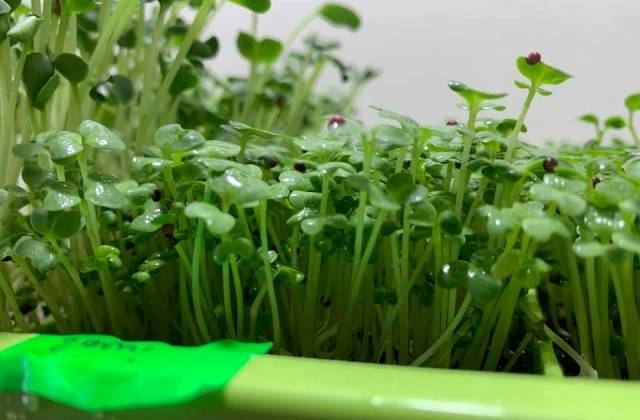Why Grow Alfalfa Microgreens?

Alfalfa is a familiar name for many consumers: it’s frequently seen on processed foods labels as ‘Alfalfa’, or ‘Milsungrass’. However, there are two species of alfalfa, and MicroGreens are a sub-species of the latter. Alfalfa can be ingested in its unprocessed form (however more commonly it’s used as a supplement), or can be mechanically transformed into a supplement. Today, many supermarkets and health food stores sell products based on MicroGreens.
Alfalfa: Often to be mistaken for their sprouted counterparts, alfalfa microgreens possess a deeply green, blooming leaves. Often known for their ability to grow in various types of soil, alfalfa seeds are highly nutritious when sprouted. With a subtle taste and a low crunch, alfalfa microgreens definitely go well with just about anything. Planting them is simple, but requires knowledge of how to prepare the seeds, and where to sow them for optimum yield.
Health Benefits: Like other members of the ‘Citrus’ family, alfalfa microgreens contain healthy vitamin A and potassium, as well as protein, fiber and calcium. Alfalfa is also rich in magnesium, niacin, phosphorus and potassium. Microgreen polyphenols are thought to have some strong anti-cancer properties, while others say they offer protection against age-related wear and tear. One important nutrient is flavonoids, which are thought to reduce cholesterol levels and stimulate the immune system. Alfalfa seeds contain significant quantities of manganese and iron, which are essential in the production of healthy red blood cells. Including these nutrients in your diet can help you live a longer and healthier life.
Nutritional Benefits: It is believed that alfalfa sprouts offer significant amounts of antioxidants, which can help lower the risks of cancer, cardiovascular disease, stroke and Alzheimer’s. The antioxidants found in alfalfa are similar to those found in grape seeds and appear to prevent damage done to DNA by free radicals. Resveratrol is an antioxidant found in red grapes, and studies suggest it might have similar anti-aging and health benefits. Other potential vitamins, minerals and nutrients contained in alfalfa include calcium, chromium, magnesium, sodium, thiamin, zinc, niacin, riboflavin and potassium.
Where to Grow: Alfalfa is a perennial grass, so it’s important to plant seedlings from spores. If you grow the seeds indoors, a warm, sunny location is optimal. Alfalfa sprouts can be stored on trays in the refrigerator for up to three weeks. When you’re ready to harvest your alfalfa microgreens, just pull them from the trays and cut them into uniform, even strips about one inch wide. Alfalfa sprouts make great indoor planted vegetables and can be used liberally in salads, juices and smoothies.
Care for Your Alfalfa Micro Greens: After they’re harvested, alfalfa microgreens require a warm place with plenty of light to germinate. You should prepare the soil by adding one cup of bone meal to three cups of dry garden soil, or a combination of bone meal and soil. Place the seeds into the mixture, and cover for about three weeks. Seeds should be started in shallow containers and then be planted in full sun, following the same watering instructions as you would for other seedlings.
Alfalfa Micro Greens Are Perfect For Growing Inside The House Too: While they’re an excellent source of fiber and healthy, vitamin-rich nutrients, alfalfa microgreens also come packed with flavor. They have a mild flavor, a crunchy root and a soft, sweet center. They’re perfect for slicing on sandwiches, sprinkled over salads or mixed into baked dishes for a bright, fresh flavor. When they’re freshly picked, alfalfa microgreens have a light, crisp taste that’s a perfect contrast to its green leaves.
Alfalfa has a light flavor, but packs a powerful nutritional benefit. This low-maintenance vegetable is easy to grow indoors, ideal for growing inside the home where space is limited. With its crunchy, green leaves, and mild taste, it’s one of the most versatile vegetables available and perfect for growing inside or out.